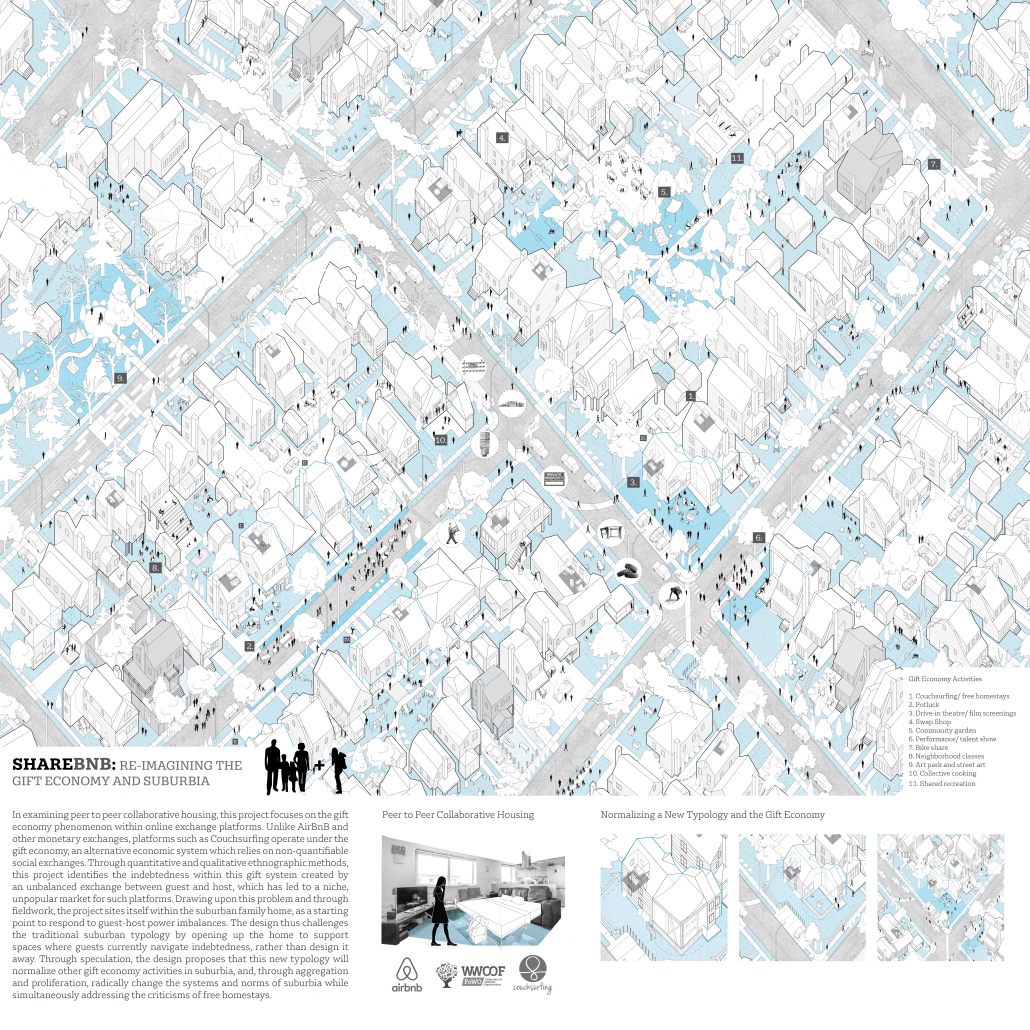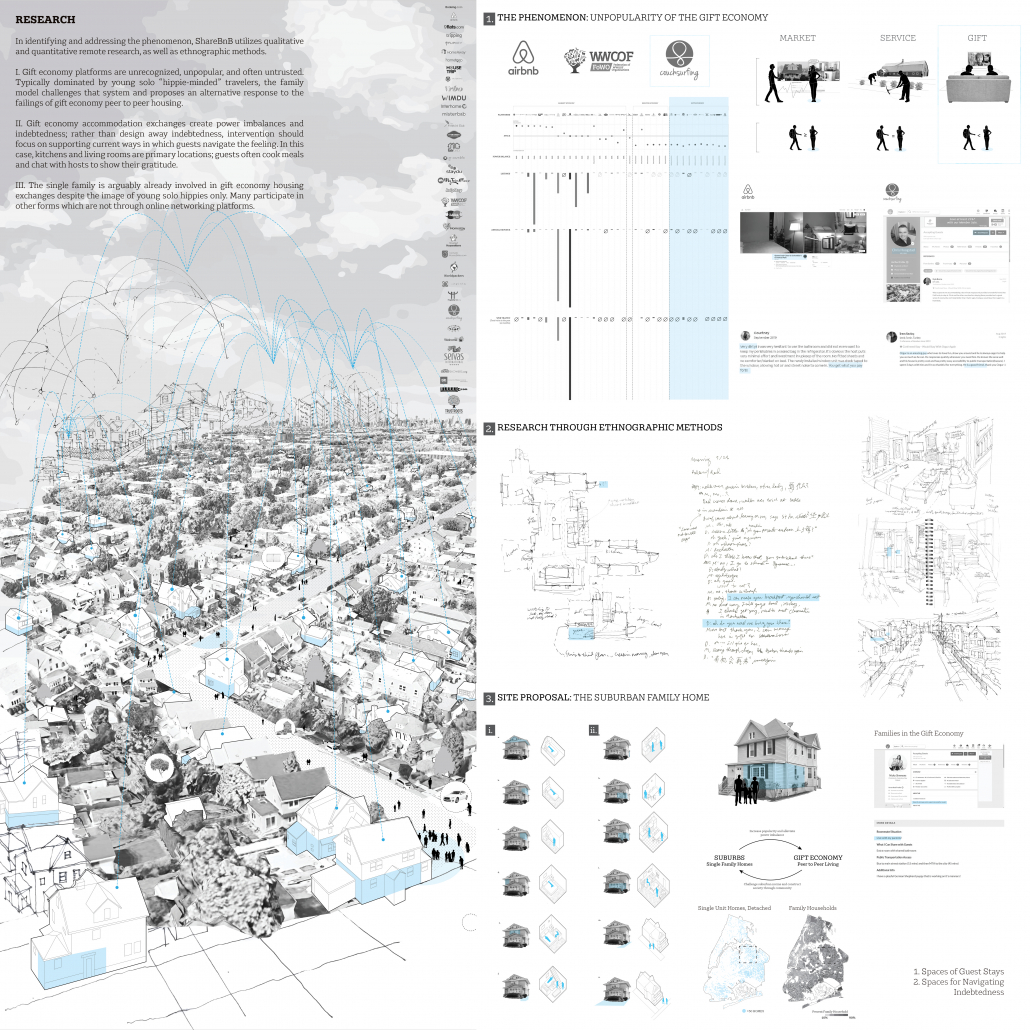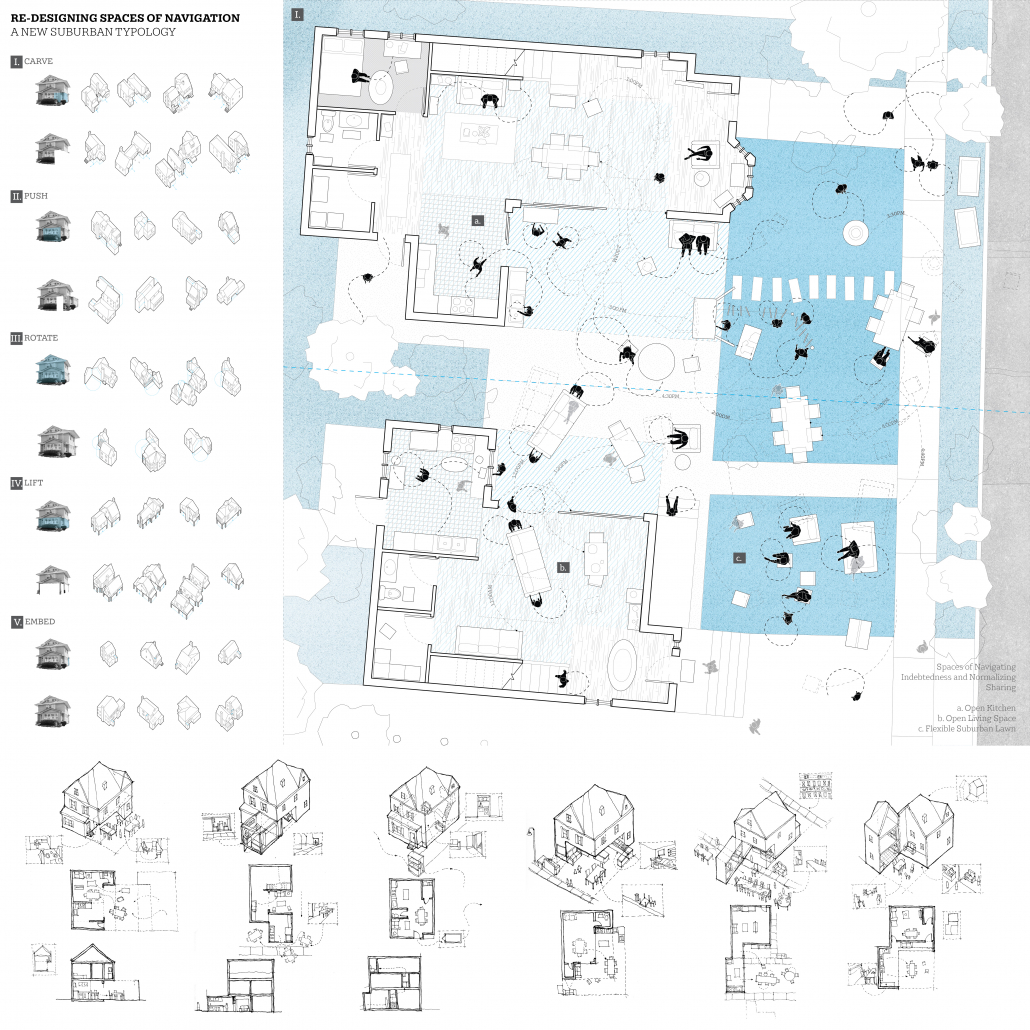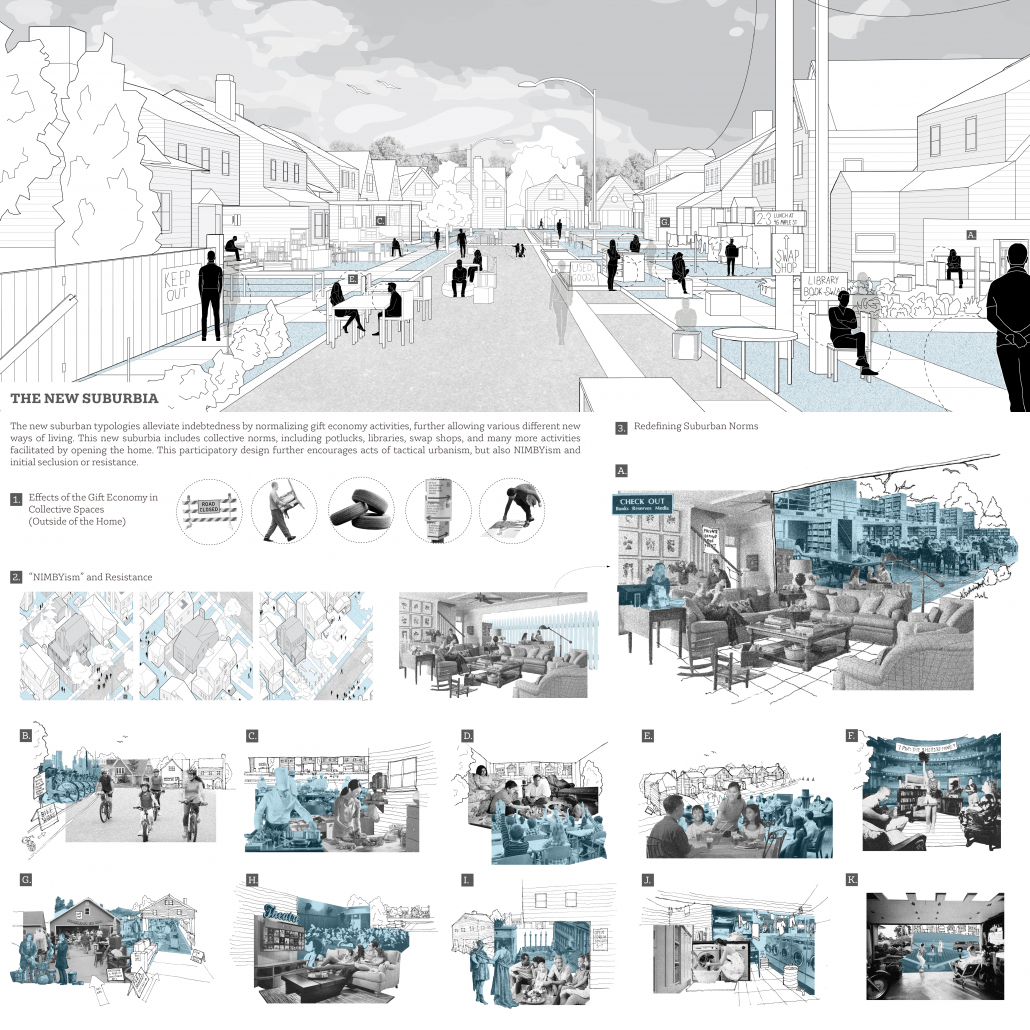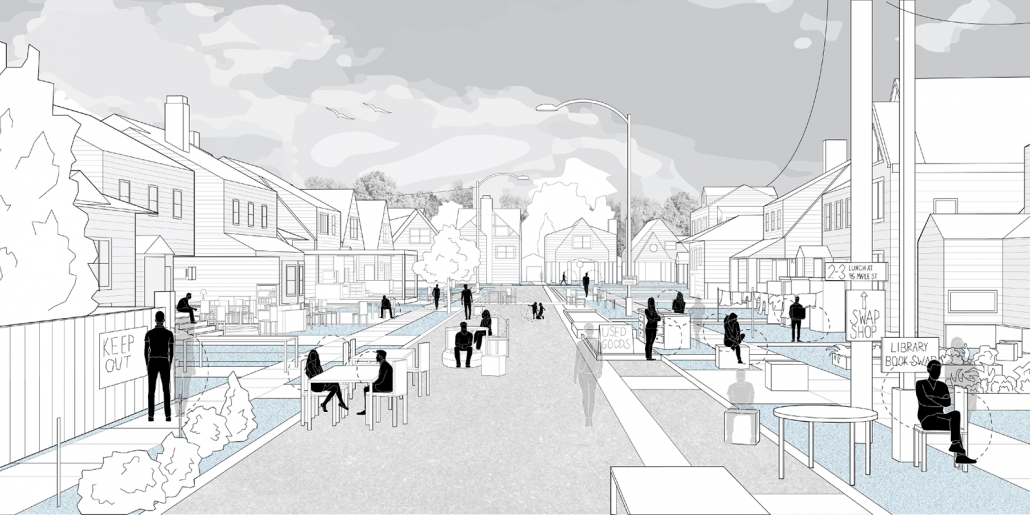2020 Housing Competition
3rd Place: ShareBnB – Re-imagining the Gift Economy and Suburbia
Emily Hu
ShareBnB – Re-imagining the Gift Economy and Suburbia
Student: Emily Hu
Faculty: Jiong Wu
School: Syracuse University
Juror Comments
Project Description
In recent years, the introduction and increasing popularity of AirBnB and other peer to peer collaborative housing platforms have redefined housing, tourism, and social norms. Within online housing exchange platforms, ShareBnB focuses on the phenomenon of the gift economy, an alternative economic system which relies on non-quantifiable social exchanges rather than monetary means to facilitate staying in a host’s home. Through research and design speculation, this project identifies the unpopularity and perceived unsafety of gift economy home sharing and proposes a normalization of this niche economic system to address criticisms of free homestays.
Through quantitative and qualitative examination of 40 online platforms, this project focuses on the power imbalance between host and guest, whereby the guest feels in debt due to non-monetary exchange. ShareBnB addresses this indebtedness through supporting spaces rather than design indebtedness away, such as the kitchen and living room, where guests repay debts through social interactions like cooking for or talking to the host.
Further, ShareBnB utilizes ethnographic methods through Couchsurfing in a host’s family home in Queens, New York and conducting research through interview and experience. Through this qualitative method, ShareBnB proposes the single-family suburban home as a typological site and starting point for expanding gift exchanges, due to both the perceived safety for guests and evidence of the gift economy already at work in suburbs.
The final proposal utilizes opening operations to develop a new suburban typology, radically reimagining systems and norms of suburbia. In supporting spaces of navigation, the proposal opens up possibilities for a host of other gift economy activities already occurring but not openly seen or normalized in the suburbs, including potlucks, collective cooking, book swaps, and childcare. The new participatory typology serves as a framework for development, quietly undermining and calling attention to issues of capitalism, tactical urbanism, sustainability, collectivization, and “NIMBYism”.

 Study Architecture
Study Architecture  ProPEL
ProPEL 